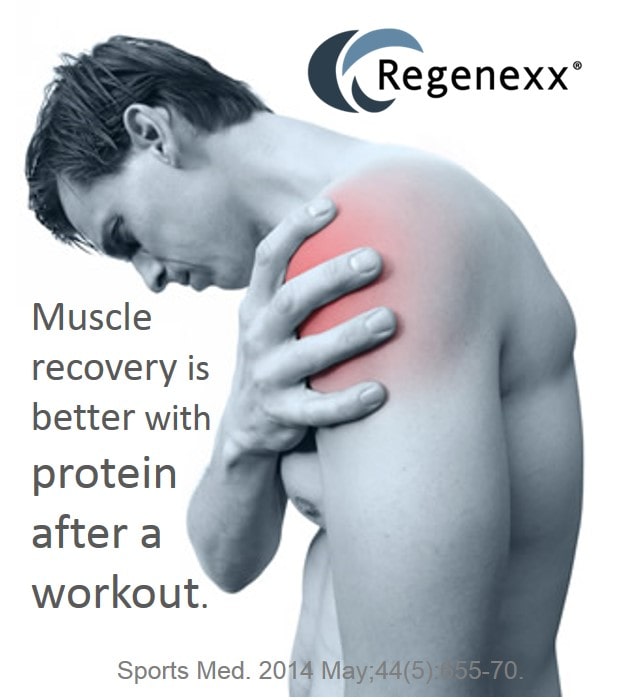New Muscle Recovery Research: Protein Drinks May Help
Athletes for centuries have been trying to figure out how to recover quicker after a big workout. New muscle recovery research may show an answer, although one that needs a bit more research. Turns out that swigging that protein drink may help.
The concept is simple – protein is a building block of muscle, so consuming some after a workout should supply the building blocks for muscles to recover. However, is it really that simple?
The new study was a review of all of the published data on the use of protein supplements alone or in combination with carbohydrate that looked at metrics like time-to-exhaustion, time-trial or muscle strength, and markers of muscle damage and soreness. Twenty-seven articles were identified of which 18 dealt exclusively with protein supplements to reduce muscle damage and soreness and improve recovery of muscle function following exercise, whereas the remaining 9 articles assessed muscle damage as well as performance metrics during single or repeat bouts of exercise.
There was no apparent relationship between recovery of muscle function and ratings of muscle soreness and markers of muscle damage when protein supplements are consumed prior to, during, or after a single bout of endurance or resistance exercise. There was also insufficient data demonstrating that a protein supplement following a bout of exercise improves muscle soreness and/or lowers markers of muscle damage. However, beneficial effects such as reduced muscle soreness and markers of muscle damage become more evident when protein supplements are consumed after daily training sessions. The research also suggests that the potential positive benefits are greatest if participants are either on a low calorie diet or have too little protein already on board (negative nitrogen balance).
The upshot? Taking a swig of a protein drink after your regular workout may help build muscle and improve recovery. This seems to work better if you’re on a low calorie diet or your excreting more protein than you intake (negative nitrogen balance). However, more research needs to be done to get a better handle on what’s going on.

If you have questions or comments about this blog post, please email us at [email protected]
NOTE: This blog post provides general information to help the reader better understand regenerative medicine, musculoskeletal health, and related subjects. All content provided in this blog, website, or any linked materials, including text, graphics, images, patient profiles, outcomes, and information, are not intended and should not be considered or used as a substitute for medical advice, diagnosis, or treatment. Please always consult with a professional and certified healthcare provider to discuss if a treatment is right for you.

